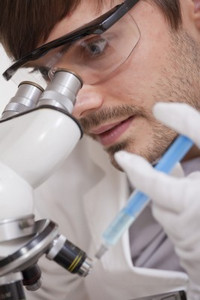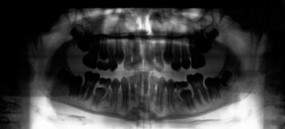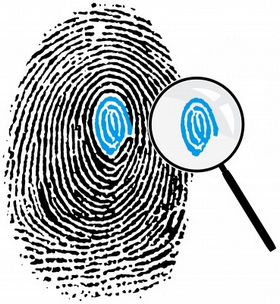All Forensic Careers
Job Description of Various Forensic Careers
|
Get FREE Info From Schools |
Curious about forensic careers? Which one? Forensic psychology, anthropology, dentistry or another forensic scientist job? Read our forensic job descriptions to learn which one is best for you.
Some of the hottest jobs in todays employment market can be found in the various forensic science careers available.
As technology progresses, we find ourselves, as a society, better able to confront technological hurdles in law and order..
We have the machines, the software, the tools, and the skills to fight crime much more efficiently than we have in the past.
Details of Forensic Careers
With the advent of new fingerprinting technology, DNA testing, computer forensics, and any number of other specialized techniques, the forensic teams find themselves in a whole new world of possibilities when it comes to seeking justice.
And with all of those new possibilities come new job openings. After all, someone needs to run that fingerprint tech, do that DNA test, or operate that forensic software.
Theres no reason why that someone cant be you.
Forensic Chemistry
 |
When chemicals need analyzing during an investigation, it is up to the forensic chemist to do the work.
Among the many things forensic chemists analyze and evaluate are blood stains, DNA samples, and clothing fibers.
There are many different specialties within the forensic chemistry department, including the analysis of:
- Fingerprints
- DNA
- Blood
- Drugs
Forensic Odontology
 |
Also known as forensic dentistry, this forensic career first got its roots nearly 2,000 years ago, when a Roman Emperors mother identified a rivals remains by the stain on the dead bodys front tooth.
Since that time, the investigation and identification of a victims or perpetrators teeth has become instrumental in the pursuit of justice.
Many criminal investigations have been successfully closed over the last 2,000 or so years simply by identifying the owner of a tooth or bite mark.
It certainly takes a bit of schooling to have a successful forensic career in odontology, but the study and training are well worth it. Once youve been certified, you join an elite branch of forensic science that works a very important angle within the crime scene unit and takes home a very solid paycheck.
Forensic Archaeology
Digging up the past is the modus operandi of the archaeologist; doing so to aid a criminal or civil investigation is the work of forensic archaeology.
There are a number of ways in which a forensic archaeologist can help a case, including:
- Uncovering buried items that pertain to a case
- Investigating mass graves
- Analyzing the remains of an under- or above-ground burial
Most forensic archaeologists have doctorate degrees, meaning that youll have to spend a good deal of time in school. But once you have your proper credentials in order, your work potential is virtually limitless in either the public or private sectors.
Forensic Tools
Beyond the analytical mind every forensic investigator needs to have, there are a great many different tools he or she uses to aid in a criminal or civil investigation.
Here's a sampling of the categories of tools forensic scientists have in their toolbox:
 |
- Crime Scene Tools These are often physical tools that help in the analysis of a crime scene and the collection of evidencei.e. crime scene tape, plastic bags, cotton swabs, and the like.
- Laboratory Equipment These are tools used mostly in the lab because of size, weight, expense, or the need for spacei.e. DNA testing apparatus, centrifuge for blood samples, medical imaging machines, etc.
- Software Computers have become, in recent decades, a big part of many criminal investigations. Theres software available that helps the forensic investigator search hard drives, recover deleted files, evaluate emails, etc.
The number of tools available to the criminal justice team is incredibly vastranging from learned techniques to MRI machinesand every one of them is employed to help bring investigations to a satisfying conclusion.
Forensic Dentistry
This forensic career focuses on the investigation and evaluation of teeth in the pursuit of justice. The two most common practices of the forensic dentistor forensic odontologistare:
- Identifying remains based on recovered teeth or x-rays
- Matching bite marks to dental records
Whether the case is a criminal one or civil, there may be a need to call a forensic dentist into play. One of the most difficultand, unfortunately, one of the most commoncases for the forensic dentist involves child abuse. Bite marks sustained during an attack often go a long way towards making a righteous conviction.
Forensic Science Fingerprinting
 |
One of the most important forensic careers is the fingerprint analyst.
Very often, it is a fingerprint recovered from the scene of a crime that can turn a case.
Fingerprinting has been around for more than a hundred yearsSir Francis Galton and Sir Henry Edward are credited as the most important pioneers in this specialization.
When modern computers were introduced to the crime lab, identifying and matching fingerprints became a much easier task.
Forensic Radiology
Radiologists work with medical imaging to identify and analyze abnormalities beneath the surface. Forensic radiologists do the same thing, just in a legal setting.
Using x-rays, ultrasounds, MRIs, and CT scans, forensic radiologists can aid criminal investigations by locating hidden objects or unnatural anomalies in people, both ante-mortem and post-mortem.
Forensic Scientist Salary
 |
What is the average salary of a forensic scientist? This is a question that is difficult to answer because there are so many different kinds of forensic scientists working in the field or at the lab.
Depending on where you work, which position you hold, how long youve been working, and for whom you work, the number on your paycheck can be anywhere along an incredibly vast range.
Know this: the more qualified you are, the better your education, the more training you have, and the better work ethic you have, the more likely you are to make an above-average forensic scientist salary.
Forensic Anthropology Information
The forensic anthropologist studies human remains in an effort to aid an investigation in the legal setting. This forensic career involves analyzing crime scenes and figuring out answers based on the victims bones.
Osteology, or the study of bones, can play an incredibly important role in the forensic anthropologists work because they can offer up so much information. Especially in a cold case situation, when physical evidence is difficult to find, the forensic anthropologist can provide leads from the remains of victims or criminals.
Forensic Linguistics
 |
The intersection between language and the legal system is where the forensic linguistics specialist works. This is quite a unique forensic career and one few people dream of being as a child.
Investigations are full of words, both spoken and in print. It is up the team of forensic linguists to study and evaluate those words to aid in an investigation.
A few of things the forensic linguist is responsible for include:
- Identifying the authors of documents
- Verifying that suspects understood their Miranda rights
- Analyzing ransom demands or suicide notes
Forensic Nurses
 |
These forensic examiners work on the front lines of criminal investigations by caring for victimsand criminalswho need medical assistance.
A forensic nurse can have any number of different specialties, including:
- Caring for the elderly
- Working with inmates at a correctional facility
- Or helping those with mental imbalances
The two most common types focus on sexual assault and child abuse.
It is the duty of the forensic nurse to care for present injuries and work to minimize future traumatic stress from the crime.
Becoming a Forensic Scientist
Becoming a forensic scientist can be difficult at times, but the end result is well worth your time and effort. A small sampling of the rewards: A comfortable pay check, an interesting day-to-day job, and the knowledge of working to make your world a better place.
Before you jump into the waters of this particular career pool, however, there are a number of questions youre going to need to ask yourself and others.
- Do you want to work in the criminal justice system?
- Which specialty do you want to pursue?
- What kind of education and training requirements does it demand?
- How much does the job pay hourly, monthly, or yearly?
Salary for a Forensic Investigator
The salary for a forensic investigator spans just as wide a range as that of the forensic scientist, and for the very same reasons.
There are countless positions open under the banner of forensic investigator, including: police officer, FBI agent, crime scene technician, and more.
|
Get FREE Info From Schools |
Return from Forensic Careers to Criminology Degree





